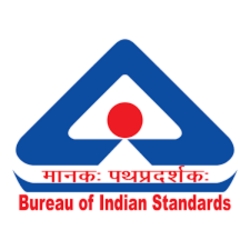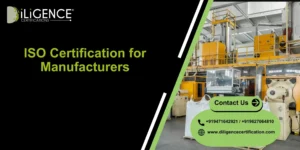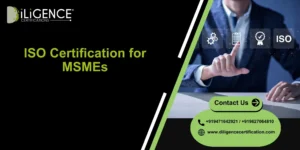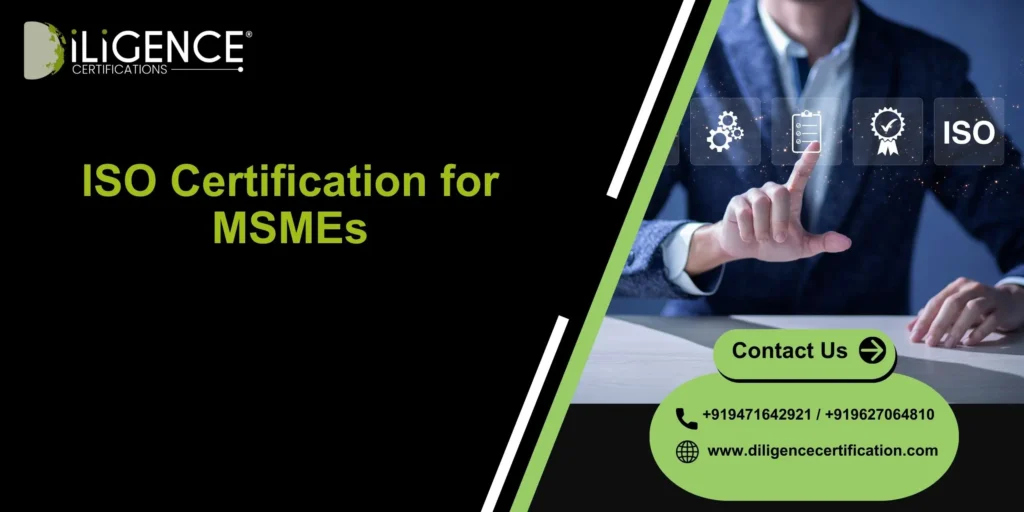- The Structural Weather-resistant steel will need to be equipped with a BIS Certification according to the specified standard IS 11587:1986.
- The certification is basically a product passport in terms of resistance to corrosion and the mechanical performance of the product.
- The formal issuance of the certificate is preceded by sampling and testing in the lab and a local office audit by BIS officials.
- The steel can be used to implement an essential public utility and infrastructure project.
- BIS verification by auditing is always in progress.
Introduction

After a steel producer in Raipur lost a big tender for outdoor structural plates, he came to us for help. Their product was technically correct, but the purchaser rejected it because the product didn’t have a BIS Certification for Structural Weather-Resistant Steel under IS 11587:1986. Such cases are becoming increasingly common as PSU and infrastructure projects require the use of certified, corrosion-resistant steel for long-term durability. The weather exposure, moisture, and the presence of industrial pollutants make it a matter of compliance rather than an option. Knowing how BIS certification is done can save manufacturers from being rejected, and thus, they can take bigger and more valuable projects with ease. Bureau of Indian Standards
What is IS 11587:1986?
IS 11587:1986 is an Indian standard that lays down the quality and performance requirements of the structural weather-resistant steel which is used in the open, naturally corroding areas. Basically, the standard serves as a gatekeeper to make sure that the metal solution for the structurally stable system is not only chemically but also physically and in terms of corrosion resistance has the right properties for it to be able to last for a long time.
Key Points:

- It is a standard that sets the limits of the structural weather-resistant steel types in plate and sectional materials.
- The primary aim of the standard is to determine the chemical composition of the material for the purpose of corrosion resistance.
- This standard additionally lays down the mechanical characteristics such as tensile strength and yield which the material is required to demonstrate.
- The installation of these materials is in situations like heavy-duty bridges, tall towers, industrial facilities, and outdoor areas. ISI MARK
- The step is a crucial one in securing that the materials will be able to perform sustainably under harsh weather conditions for long periods of time.
Why is BIS Certification Mandatory
BIS Certification is a must to give assurance that structural weather-resistant steel that is going to be sold in the Indian market is of standard safety, durability, and performance as stated in IS 11587:1986.
Key Points:
- Government notifications under the BIS Act mandate the use of certified steel for the categories that are regulated.
- It is a security measure for the public infrastructure against failure due to the use of low-quality or non-compliant materials
- It also assures uniformity in the chemical composition and in the corrosion resistance of every batch.
- It is a must-have for manufacturers and importers who supply Indian projects.
- Essential for tender approval in PSU, railway, defence, and major EPC contracts.
Importance and Benefits of BIS Certification
| Importance of BIS Certification | Benefits to Manufacturers |
| Ensures compliance with IS 11587:1986 standards | Reduces material rejection in projects |
| Guarantees consistent corrosion-resistant quality | Improves acceptance in PSU and EPC tenders |
| Protects structural safety in outdoor conditions | Enhances brand credibility and reliability |
| Mandatory for regulated steel categories | Opens access to large infrastructure contracts |
| Prevents supply of sub-standard materials | Helps maintain long-term market trust |
Step-by-Step Process of BIS Certification

Step1:Documentation
- Collect required business and product documents
- Ensure compliance with BIS standards
- Prepare technical files and product details
- Verify authenticity of all submitted records
Step2:Product Testing
- Send product samples to a BIS-recognized lab
- Conduct tests as per relevant Indian Standards (IS)
- Obtain an official test report
- Fix issues if the product fails and retest
Step3:Application Submission
- Fill out the BIS registration form online
- Upload documents and test reports
- Pay the required government fees
- Track application status on the BIS portal
Step4:Scrutiny and Inspection
- BIS reviews documents and test reports
- Factory inspection may be conducted (if applicable)
- Clarifications or additional documents may be requested
- Compliance is verified before approval
Step5:Grant of License
- BIS issues the registration certificate
- Unique R-number or license number is provided
- Manufacturer can affix the BIS mark on products
- Renewal required as per BIS validity timeline
Documents Required for BIS Certification
| Category | Documents Required |
| Business Documents | Business license/registration, ISO certificate, organizational details |
| Manufacturer Details | Factory layout, process flow chart, machinery list, production details |
| Product Documents | Product specifications, component list, user manual, model details |
| Testing Documents | Test report from BIS-recognized lab, sample details, test request form |
| Legal & Compliance | Authorization letter, brand ownership proof, trademark certificate (if any) |
| Import/Foreign Manufacturer (If applicable) | AIR (Authorized Indian Representative) details, contract agreement, overseas manufacturer documents |
Timelines, Costs, Validity & Renewal
- Timelines:Usually 20–30 days; testing takes 7–15 days.
- Costs:Govt + testing fees vary by product; extra charges possible.
- Validity:Typically valid for 2 years.
- Renewal:Done before expiry; needs updated docs/tests; extends up to 5 years.
Why Choose Diligence Certifications
- Expert team with strong BIS and regulatory knowledge
- Fast, streamlined processing to reduce approval delays
- Accurate documentation and testing coordination
- Transparent guidance with clear communication
- High success rate and complete end-to-end support
Conclusion
After being BIS certified, Structural Weather-Resistant Steel as per IS 11587:1986 has thus become one of the key factors for suppliers, who want to collaborate with government departments, PSUs, and large EPC contractors. It is an unequivocal evidence that the metal can be exposed to the open air for a long time without any negative impact and complies with all the mechanical and chemical requirements laid down in the standard. Thus producers, by winning this certification, obtain more market credibility, fewer technical rejections, and the facilitation of their project approvals.For the enterprises which are in the plan of the sector of infrastructure or the industrial sectors to broaden their business, it is now a condition of the regulation and a strategic advantage, at the same time, to acquire BIS compliance. In case you require assistance during tests, paper work, or audits, a proficient team can make the whole journey much easier and faster.
Frequently Ask Questions
What is IS 11587:1986?
India Standard is the standard relates to IS 11587:1986 which is a standard that specifies the features from the chemical, mechanical, and corrosion-resistant aspects of the less of structural weathering steel for outdoor regions.
What is the purpose of BIS Certification for weather-resistant steel?
BIS Certification is the credential of the most durable, energy-efficient, and environmentally friendly material that mainly targets the government, PSU, and infrastructure sectors, where the use of non-compliant materials is strictly prohibited.
What type of industries need to use steel certified with IS 11587:1986?
The transportation industries that include railways and bridges, power plants, large infrastructure projects, defense industry, and EPC projects are the ones in which the use of certified weather-resistant steel is required.
What are the tests required to obtain BIS Certification under IS 11587:1986?
These tests also cover the determination of the chemical composition and include tensile strength, yield stress, elongation, impact strength, and corrosion-resistance performance.
What is the time period of the BIS Certification process?
The whole procedure usually lasts for 20–30 days, of which 7–15 days are set aside for product testing, and the rest are for documentation verification and audits.
What are the documents necessary for BIS Certification?
The documents, among which are business registration, manufacturing process description, product standards, test reports, factory layout, machinery list, and compliance records.
Is the factory inspection included in the IS 11587:1986 certification?
Definitely a part of the factory inspection, local BIS officers perform the factory inspection for checking production capacity, quality level, and standard conformity.
What if the steel do not pass the BIS tests?
Steel failing the BIS tests would allow the manufacturer to locate the problem areas so that they can fix them by changing the process or material composition and then sending the samples back for retesting.
How long will a BIS License be valid?
BIS typically can hold its license for a period of 2 years, and the holder has the option to renew it for up to 5 years by submitting updated documents and test reports.
Are foreign manufacturers allowed to apply for BIS Certification under IS 11587:1986?
There's no restriction on foreign manufacturers, but they will need to have an Authorized Indian Representative (AIR). Besides, they should adhere to the same requirements for testing, documentation, and audits as local manufacturers.








 BIS Certification
BIS Certification
 CDSCO
CDSCO
 CPCB
CPCB
 LMPC
LMPC
 WPC Approval
WPC Approval
 Global Approvals
Global Approvals
 TEC
TEC
 ARAI
ARAI
 BEE
BEE
 ISO Certification
ISO Certification
 DGCA Certification
DGCA Certification
 NOC For Steel
NOC For Steel



















 Business Registration
Business Registration















 Legal Services
Legal Services
 Trademark Registration
Trademark Registration
 Copyright Registration
Copyright Registration
 Patent Registration
Patent Registration















































